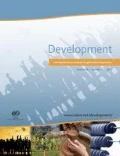Abstract
In this article, I offer an ethnographic and historical analysis of an alternative governmental project emerging in Ampiyacu basin, a highly biodiverse tropical area in Peruvian Amazonia. By considering the ways in which the Bora and Huitoto communities produce and deal with procedures and documentation that evoke the traditional structures of the State bureaucracy, I seek to understand the complex means by which these communities relate to the State’s forms of authority in their attempts to self-regulate logging activities within their claimed territories. I argue that the governmental project advanced by these communities is interwoven in a dialectical relationship between authoritative claims formulated through State evocations and the contingency of everyday affects. While any form of regulation ultimately depends on the uncoordinated actions and partial agreements achieved among indigenous dwellers, such regulations continuously produce innovative ways of interpreting the State’s forms of authority and experimenting (with) liberal democratic institutions. I show how different forms of biopolitical production take place in this process, and how this alternative governmental project is not reducible to either State’s forms of authority or to the commonalities of affective immaterial labour. Rather, I seek to draw attention on the ways in which State authority is evoked, appropriated, transformed and disputed in the contingent flow of life in common in Ampiyacu basin.


Similar content being viewed by others
Notes
According to Peruvian legislation, the native community is the legal device for the acknowledgement of indigenous lands in Peru.
References
Agrawal, Arun (2005) Environmentality: Technologies of government and the making of subjects. London: Duke University Press.
Barclay, Frederica and Fernando Santos Granero (2002) La Frontera Domesticada: Historia Económica Y Social de Loreto, 1850–2000. Lima: IFEA.
Burchell, Graham, Colin Gordon and Peter Miller (1991) The Foucault Effect: Studies in governementality. Urbana: University of Illinois Press.
Casarino, Cesare and Antonio Negri (2004) ‘It’s a Powerful Life: A conversation on contemporary philosophy’, Cultural Critique 57: 151–183.
Chase Smith, Richard (1994) The Politics of Diversity: COICA and the ethnic federations of Amazonia. Lima: Instituto del Bien Común.
Coomes, Oliver T. and Bradford L. Barham (1994) ‘The Amazon Rubber Boom: Labour control, resistance, and failed plantation development revisited’, Hispanic American Historical Review 74 (2): 231–257.
Das, Veena and Deborah Poole (eds.) (2004) Anthropology in the Margins of the State. Santa Fe, NM: School of American Research Press; School of American Research Advanced Seminar Series. Oxford: James Currey.
Espinosa, Oscar (2009) ‘¿Salvajes Opuestos Al Progreso?: Aproximaciones Históricas Y Antropológicas a Las Movilizaciones Indígenas En La Amazonía Peruana’, Anthropologica Año XXVII (27): 123–168.
Foucault, Michel (2006) Seguridad, Territorio, Población. Buenos Aires: Fondo de Cultura Económica.
Hardt, Michael (1999) ‘Affective Labor’, Boundary 2 26 (2): 89.
Hardt, Michael and Antonio Negri (2006) Multitude: War and democracy in the age of empire. London, NY: Penguin Books.
Instituto del Bien Comun (2010) Archivos Del Proyecto Grandes Paisajes Putumayo Amazonas. Lima: Instituto del Bien Comun.
Krupa, Christopher (2010) ‘State by Proxy: Privatized government in the Andes’, Comparative Studies in Society & History 52 (2): 319–350.
Miller, Peter and Nikolas Rose (1990) ‘Governing Economic Life’, Economy and Society 19 (1): 1–31.
Ruddick, Susan (2010) ‘The Politics of Affect: Spinoza in the work of Negri and Deleuze’, Theory, Culture and Society 27 (4): 21–45.
Scott, James C. (1998) Seeing Like a State: How certain schemes to improve the human condition have failed. Yale Agrarian Studies New Haven, CT: Yale University Press.
SERNANP (2009) Plan Director de Las Áreas Naturales Protegidas Del Perú. Lima: Servicio Nacional de Areas Naturales Protegidas por el Estado.
Singh, Neera M. (2013) ‘The Affective Labor of Growing Forests and the Becoming of Environmental Subjects: Rethinking environmentality in Odisha, India’, Geoforum 47: 189–198.
Smith, Richard Chase and Danny Pinedo (2002) El Cuidado de Los Bienes Comunes: Gobierno Y Manejo de Lagos Y Bosques En La Amazonía. Lima: IEP-IBC.
Acknowledgements
Several people and institutions have been supportive of this research over the last years. The autor is particularly thankful to the FECONA, the Instituto del Bien Común, my colleagues at the University of Georgia and the people of Ampiyacu basin.
Additional information
Describes how state authority is manifested, managed and is evolving in the Peruvian Amazon basin
Rights and permissions
About this article
Cite this article
Javier Romero Dianderas, E. State Evocations, Affect and Indigenous Organizations in Contemporary Peruvian Amazonia. Development 58, 21–30 (2015). https://doi.org/10.1057/dev.2015.21
Published:
Issue Date:
DOI: https://doi.org/10.1057/dev.2015.21




